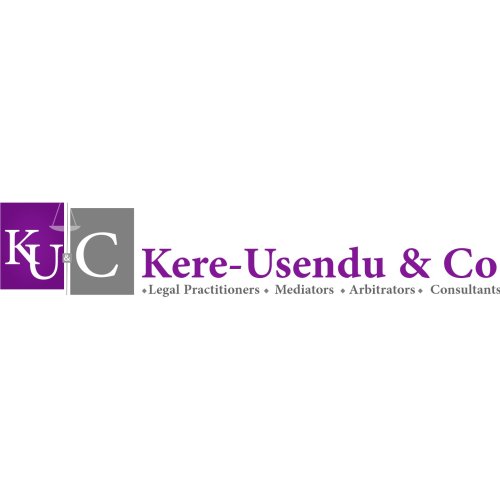Best Labor Law Lawyers in Jos
Share your needs with us, get contacted by law firms.
Free. Takes 2 min.
List of the best lawyers in Jos, Nigeria
About Labor Law in Jos, Nigeria
Labor Law in Jos, Nigeria, also known as Employment Law, oversees the rights, obligations, and responsibilities within the employer-employee relationship. This sector of law includes a wide array of topics including health and safety, unfair dismissal, discrimination, wages, and work conditions. Nigeria’s labor laws are embodied in the Labor Act and the Industrial Relations Act, amongst other regulations. Its primary aim is to ensure fair practices between employers and employees and to maintain a harmonious working environment.
Why You May Need a Lawyer
Scenarios in which you might require the assistance of a labor lawyer include instances where you believe you have been unfairly dismissed, aren’t receiving appropriate wages, experiencing discrimination or poor treatment at work, or if you need assistance with employment contract interpretations. Legal professionals can provide advice, identify your rights, represent you in negotiations or in court, prepare legal documents, and ensure labour standards and regulations are adhered to by your employer.
Local Laws Overview
The key concepts of Labor Law in Jos, Nigeria, mirror that of Federal Law. This includes the prohibition of forced labor, ensuring the right to fair remuneration, and the right to humane working conditions. Workers have the right to join trade unions and employers are expected to recognize such unions. Its laws also provide regulations for child labor, layoff procedures, providing safe work conditions, and ensuring appropriate working hours. Since individual circumstances can vary, it is wise to reach out to a legal professional to understand how these laws may apply to you.
Frequently Asked Questions
1. Is there a minimum wage in Nigeria?
Yes, Nigeria has a federally mandated minimum wage that all employers are required to follow. The current amount may change frequently, so it’s recommended to check the latest updates.
2. What are the maximum working hours in Nigeria?
Under Nigerian labor laws, the maximum working hours are 8 hours a day, not exceeding 40 hours a week.
3. Can I form or join a union in Nigeria?
Yes, workers in Nigeria have the right to form or join trade unions for the protection of their rights and interests.
4. Can I sue my employer for unfair dismissal?
Yes, if you believe that you have been unfairly dismissed or terminated without valid reason, you may file a suit against your employer. Consulting a labor lawyer will provide you with the necessary guidance.
5. What should I do if I experience workplace discrimination?
If you experience discrimination at the workplace, it's important to report this immediately to your employer, and if not resolved, consult with a labor law professional.
Additional Resources
The Nigeria National Industrial Court provides resources and adjudicates on matters relevant to labor law. The Federal Ministry of Labor and Employment offers guidelines and resources concerning labor laws and their enforcement. Nonprofit organizations such as Nigeria Labor Congress can also provide support and resources.
Next Steps
If you believe you need legal assistance regarding labor law in Jos, Nigeria, research for reputable labor lawyers or law firms specializing in employment law. Consult with them regarding your situation and they should be able to guide you on the best course of action. Remember, it's important to gather all relevant information and documentation related to your case before meeting with a legal professional.
Lawzana helps you find the best lawyers and law firms in Jos through a curated and pre-screened list of qualified legal professionals. Our platform offers rankings and detailed profiles of attorneys and law firms, allowing you to compare based on practice areas, including Labor Law, experience, and client feedback.
Each profile includes a description of the firm's areas of practice, client reviews, team members and partners, year of establishment, spoken languages, office locations, contact information, social media presence, and any published articles or resources. Most firms on our platform speak English and are experienced in both local and international legal matters.
Get a quote from top-rated law firms in Jos, Nigeria — quickly, securely, and without unnecessary hassle.
Disclaimer:
The information provided on this page is for general informational purposes only and does not constitute legal advice. While we strive to ensure the accuracy and relevance of the content, legal information may change over time, and interpretations of the law can vary. You should always consult with a qualified legal professional for advice specific to your situation.
We disclaim all liability for actions taken or not taken based on the content of this page. If you believe any information is incorrect or outdated, please contact us, and we will review and update it where appropriate.









